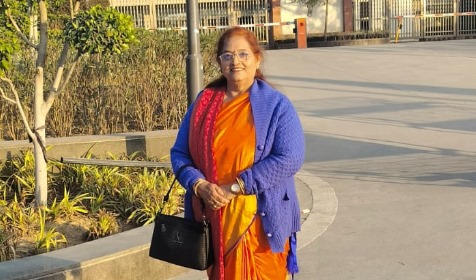International Men’s Day: History, Significance, Themes, and Why India Observes It With Growing AwarenessA detailed, fact-based, evergreen news article for Indian readers
Every year, International Men’s Day (IMD) is observed globally on 19 November to highlight men’s health, well-being, positive contributions to society, and the importance of gender balance. While not as widely celebrated as Women’s Day, International Men’s Day has steadily gained recognition in India, especially as issues like mental health, fatherhood, gender stereotypes, and toxic masculinity come under broader public discussion.
The observance was founded by Dr. Jerome Teelucksingh, a history professor from Trinidad and Tobago, in 1999, making it one of the relatively newer international commemorations. It is now marked in over 80 countries worldwide, according to the International Men’s Day Global Committee.
History & Origin
- International Men’s Day was first inaugurated on 19 November 1999 in Trinidad and Tobago.
- Dr. Teelucksingh chose the date to honour his father’s birthday and to commemorate a day when Trinidad’s football team united the country.
- The event gained global traction through support from UNESCO, NGOs, and gender-equality advocates.
- Unlike misconceptions, IMD is not an alternative to International Women’s Day. Instead, it aims to complement it by focusing on gender inclusivity and shared responsibilities.
Core Objectives of International Men’s Day
According to the IMD Global Committee, the day focuses on six primary pillars:
- Promoting positive male role models
- Celebrating men’s contributions in family, community, and the nation
- Improving male health, both mental and physical
- Highlighting discrimination against men and boys
- Improving gender relations and promoting equality
- Creating a safer world where people can thrive irrespective of gender
These goals make IMD a day rooted in inclusivity rather than competition between genders.
Theme (Varies Each Year)
International Men’s Day adopts a global theme each year. Recent themes have focused on:
- Men’s mental health
- Zero male suicide
- Positive masculinity
- Gender equality
While themes differ annually, the overarching idea remains consistent: encouraging support, empathy, and healthier conversations around masculinity.
Why International Men’s Day Matters in India
India has seen a growing momentum for IMD, driven by several societal factors:
1. Men’s Mental Health Crisis
Research from the National Crime Records Bureau (NCRB) consistently shows higher suicide rates among men, highlighting the urgent need to address mental health support, emotional expression, and societal pressures on men.
2. Changing Dynamics of Family & Fatherhood
Modern Indian families are seeing more active and emotionally connected fathers. IMD encourages recognising caregiving roles traditionally overlooked.
3. Breaking Stereotypes
Indian society continues to grapple with rigid ideas of masculinity — men must be unemotional, financially dominant, or “strong” at all times.
IMD provides a platform to challenge these stereotypes.
4. Workplace Wellness
Corporate India increasingly uses IMD to promote gender-balanced wellness programs, flexible work arrangements, and discussions on burnout — issues that affect men significantly.
5. Educational Awareness
Schools and colleges often use the day to discuss healthy masculinity, equality, consent, and gender sensitivity.
How India Observes International Men’s Day
While not a public holiday, IMD is celebrated through:
- Workplace events and panel discussions
- Health camps focusing on heart disease, prostate cancer, diabetes, and mental well-being
- Awareness campaigns on social media
- Sessions on men’s rights, legal awareness, and gender-neutral policies
- Debates and student activities in universities
- NGO-led outreach programs for boys and young men
IMD’s popularity on Indian social platforms has grown steadily, often trending nationwide on 19 November.
Common Misconceptions
- IMD is not anti-women.
It complements Women’s Day by promoting gender balance and acknowledging that all genders have unique challenges. - It is not only about celebrating men.
It focuses heavily on men’s health, suicide prevention, and emotional well-being. - It is not politically or religiously affiliated.
IMD is a voluntary observance supported by civil groups, educators, and health organisations.
Significance for India’s Future
International Men’s Day can play a transformative role in India’s social development by:
- Encouraging healthier communication and reducing gender-based conflicts
- Promoting shared parental responsibilities
- Creating gender-neutral systems of support
- Reducing stigma around men seeking therapy
- Empowering young boys with healthier models of manhood
- Strengthening family and community ties
As India continues to build a more inclusive society, IMD acts as a reminder that gender equality includes understanding the challenges faced by men and boys as well.
International Men’s Day is more than a symbolic observance — it’s a global movement toward empathy, dialogue, and balanced gender understanding. For India, the day provides a vital opportunity to address men’s mental health, challenge outdated notions of masculinity, and encourage more inclusive conversations.
As awareness grows each year, IMD is becoming an important part of India’s social calendar, reinforcing the idea that supporting men does not diminish women’s rights — instead, it strengthens the broader pursuit of equality for all.
Last Updated on: Wednesday, November 19, 2025 2:14 pm by Sakethyadav | Published by: Sakethyadav on Wednesday, November 19, 2025 2:14 pm | News Categories: Lifestyle


